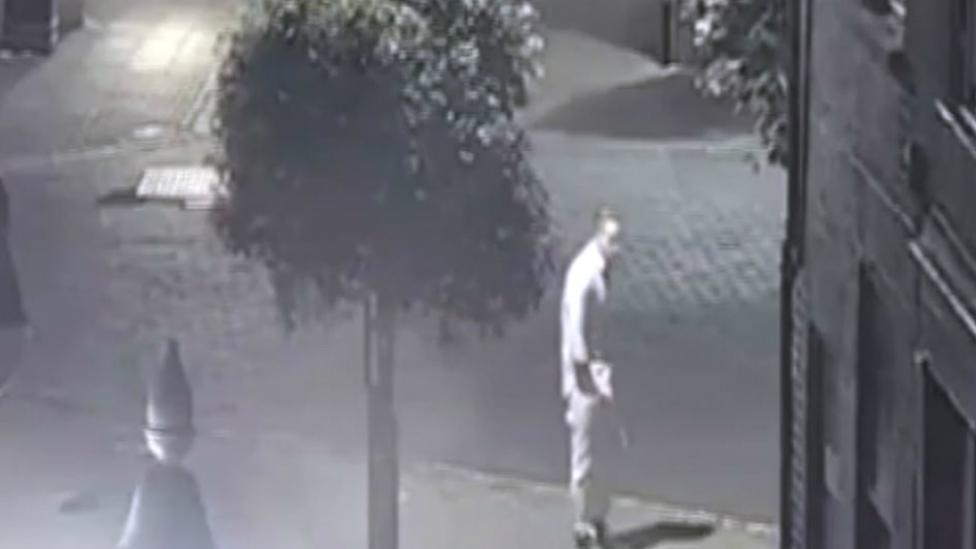Police 'confident' missing Corrie Mckeague at landfill site
- Published
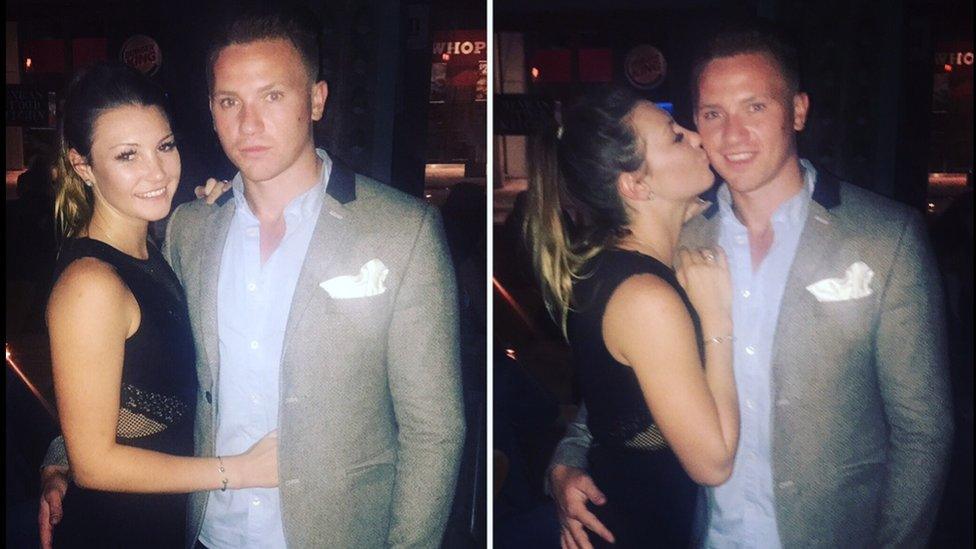
Corrie Mckeague, pictured with his girlfriend April Oliver, vanished from Bury St Edmunds on 24 September
Police searching for missing airman Corrie Mckeague say they are "confident" his body will be found at a landfill site.
The RAF serviceman has not been seen since a night out in Bury St Edmunds, Suffolk, in September.
Suffolk Police revealed a bin lorry seized shortly after the gunner vanished was carrying a heavier load than first thought.
The force is now searching a landfill site in Cambridgeshire as a result.
Live: Follow updates on the search for Corrie Mckeague
Det Supt Katie Elliott told the BBC: "I have a strong belief that we will find him here."
Corrie Mckeague's mother has spoken of her "agony" over her son's disappearance.
Asked for her reaction to the delay in the correct information about the weight of the lorry's load coming to light, she replied: "It's frustrating for me, I think it must be terribly frustrating for Corrie's family."
Det Supt Elliott said she would "have liked to have had the information sooner that would have led us to this point".
She said finding out about the lorry weight mistake was "very sobering".
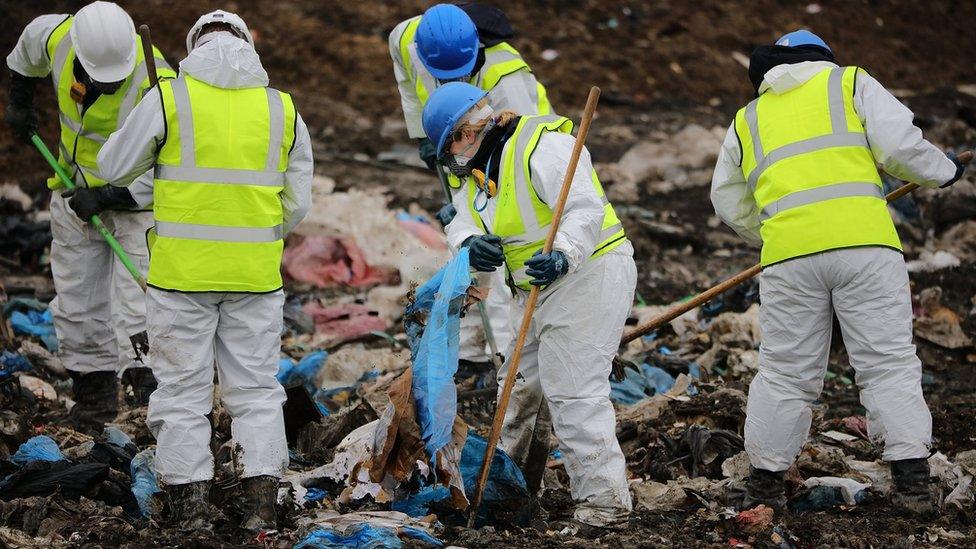
A search of the landfill site at Milton in Cambridgeshire is under way
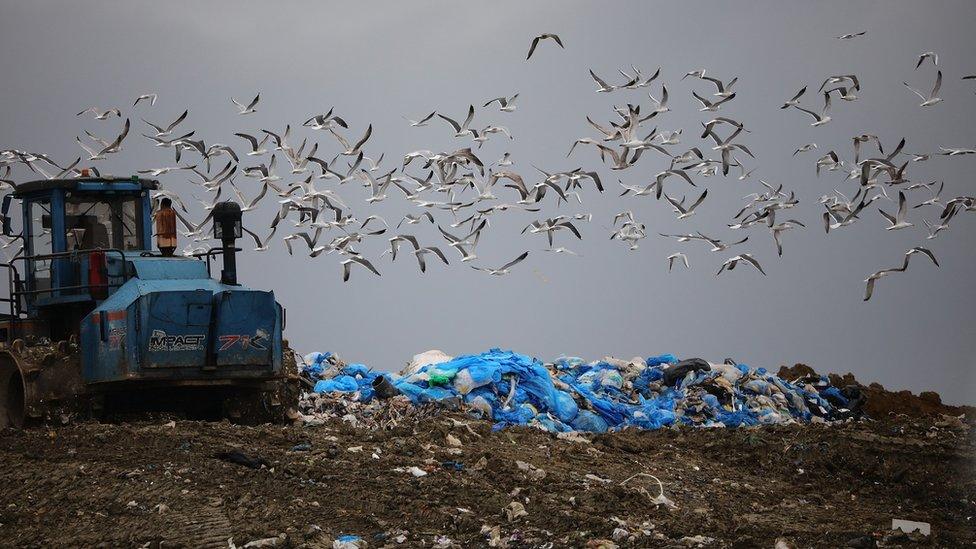
The search area measures about 920 sq m (9,900 sq ft)
"We've been working tirelessly on this investigation to try and find Corrie - that's been our priority the whole way through.
"To have that information really reinforced the decision that we'd already made that we needed to come and search this landfill site."
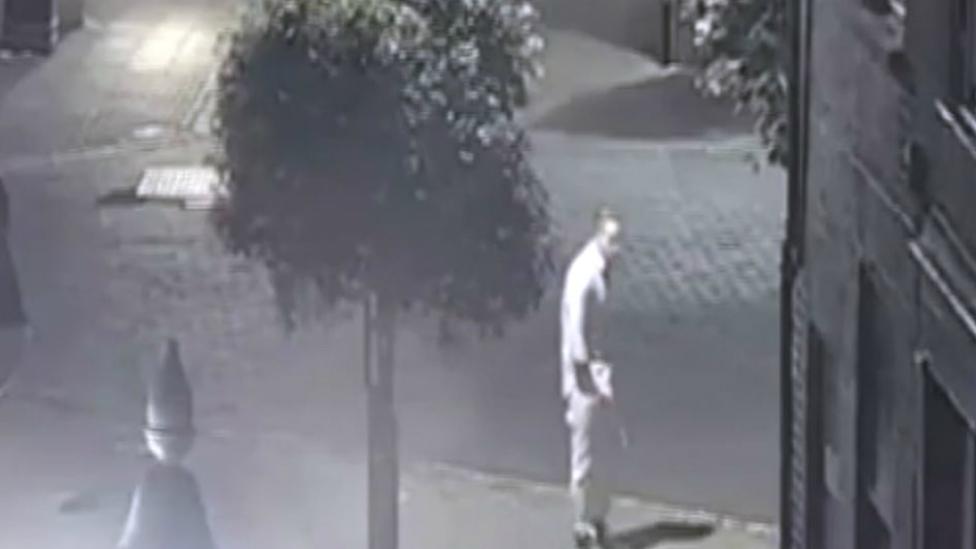
Mr Mckeague was last seen in Bury St Edmunds at about 03:20 BST on 24 September
Mr Mckeague was last seen on CCTV cameras walking into a loading bay area of Bury St Edmunds known as the "Horseshoe".
After he was reported missing, signals showed his mobile phone had been in nearby Barton Mills, and matched the route of a bin lorry.
Police were initially told the waste collected from the area weighed 11kg (1st 10lb), too light to have contained Mr Mckeague.
The force has since found out the lorry's load was more than 100kg (15st 10lb).
Suffolk Police said there had been "frustrations" in the inquiry
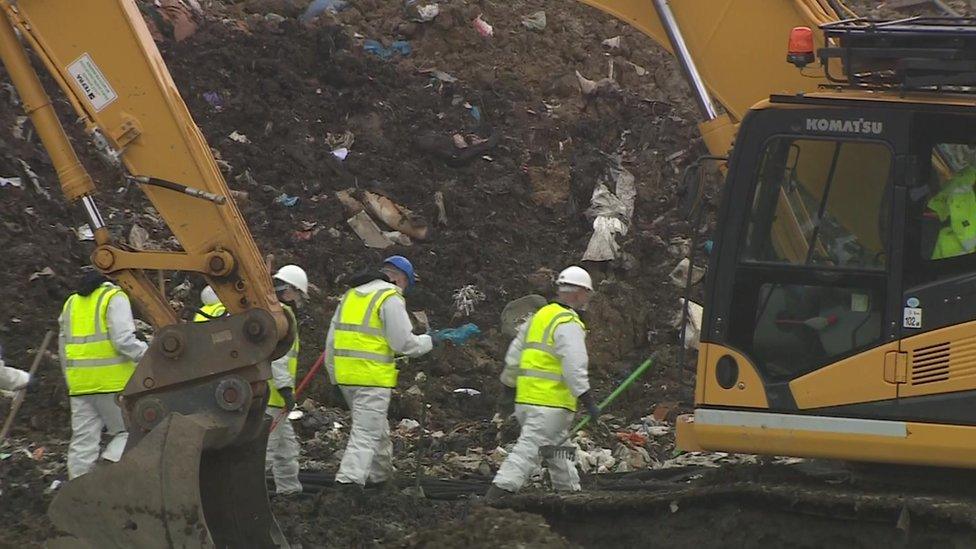
It took several weeks to prepare the landfill before search teams could move in
A search team at the landfill site in Milton, Cambridgeshire - where the lorry's load ended up - has already trawled through 60 tonnes of waste.
It could take the team of eight trained officers up to 10 weeks to sift through the rubbish, which covers an area of about 920 sq m (9,900 sq ft).
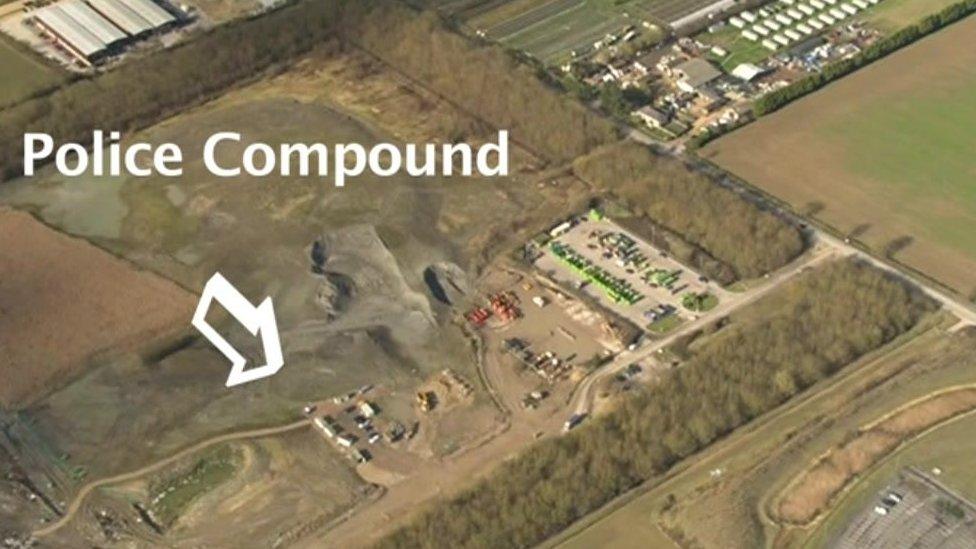
The search is centred to the left of an area where the police have set up their search compound - to the right is a household waste recycling area
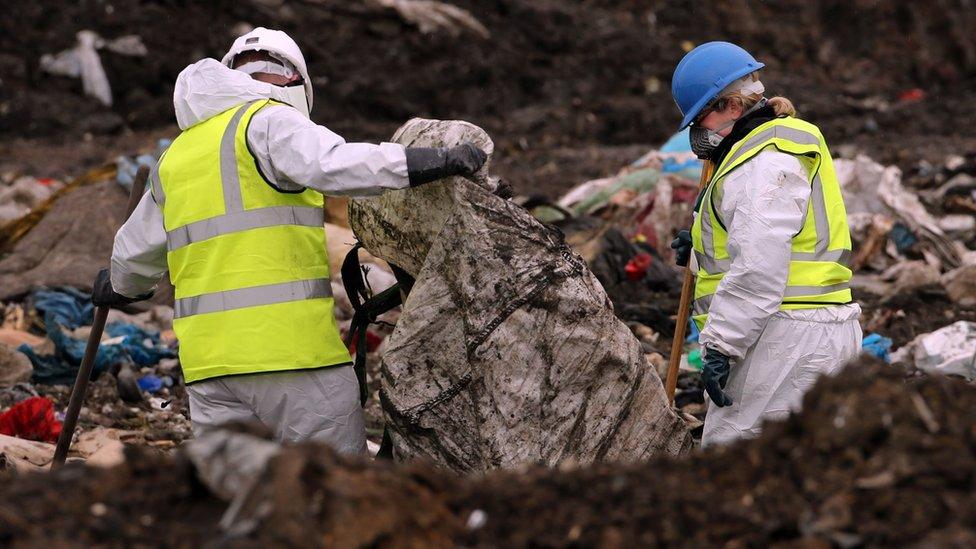
Police say they are confident of finding the missing airman's body at the site
Asked if Mr Mckeague's family had wanted police to come to search the site sooner, Det Supt Elliott replied: "We had discussions with the family around coming to search the landfill site at the beginning of the investigation when we understood Corrie's phone [was] tracked at a similar pace to the waste lorry.
"However, the information at that point did not lead us to believe that it was justifiable to come and search here. The strongest line of inquiry at that time was that Corrie had tried to walk home."
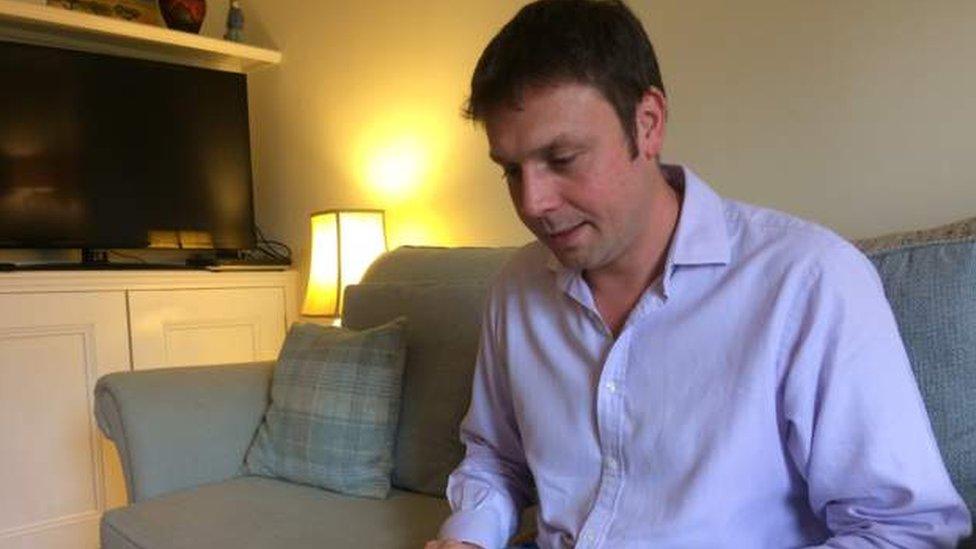
Forbes McKenzie is an intelligence expert hired to help investigate Corrie Mckeague's disappearance
Mr Mckeague's family raised more than £50,000 through crowdfunding to hire McKenzie Intelligence Services to work on the case.
Its managing director, Forbes McKenzie, said more work should have been done at the landfill site "from the outset".
He said a number of individuals had commented on the bins in the "Horseshoe" area and the bin lorry that appeared to follow the same route as the airman's phone.
Mr McKenzie said there were "lots of comments" from people who worked in the waste disposal industry who said the information provided about the bins did not add up.
"We would like to think we had something to do with directing [police] to that [landfill] site," he said.
- Published8 March 2017
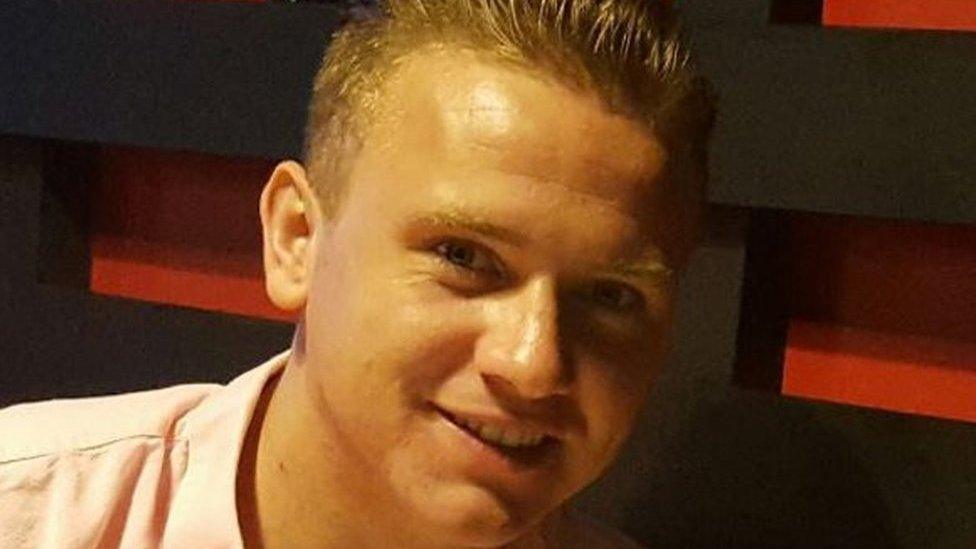
- Published28 December 2016
